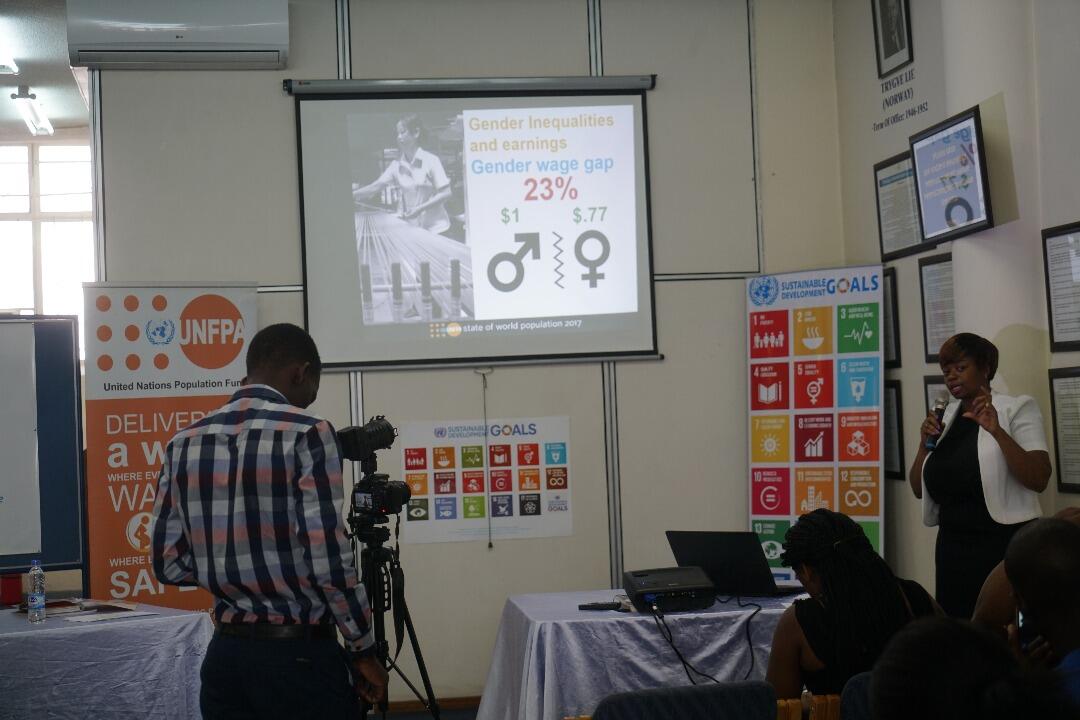|
UNITED NATIONS, New York/Zimbabwe, 18 October 2017— There is need to invest more resources to tackle the inequalities that prevent the poorest women and girls from accessing sexual reproductive health and rights in order to countries to attain their development goals, according to the United Nations Population Fund’s State of World Population Report latest report for 2017.
The costs of inequalities, including in sexual and reproductive health and rights, could extend to the entire global community’s goals, adds the new UNFPA report, entitled, “Worlds Apart: Reproductive Health and Rights in an Age of Inequality.”
The report is calling for greater investment to provide reproductive health services, including family planning, to the poorest women to ensure women and girls contribute to the economic development of their countries. This will also contribute towards the attainment of the number one Sustainable Development Goal, to eliminate poverty.
“Inequality in countries today is not only about the haves and have nots,” UNFPA Executive Director Dr. Natalia Kanem says. “Inequality is increasingly about the cans and cannots.Poor women who lack the means to make their own decisions about family size or who are in poor health because of inadequate reproductive health care dominate the ranks of the cannots.”
In most developing countries, the poorest women have the fewest options for family planning, the least access to antenatal care and are most likely to give birth without the assistance of a doctor or midwife.
Limited access to family planning translates into 89 million unintended pregnancies and 48 million abortions in developing countries annually. This does not only harm women’s health, but also restricts their ability to join or stay in the paid labour force and move towards financial independence, the report argues.
Lack of access to related services, such as affordable child care, also stops women from seeking jobs outside the home. For women who are in the labour force, the absence of paid maternity leave and employers’ discrimination against those who become pregnant amount to a motherhood penalty, forcing many women to choose between a career and parenthood.
“Countries that want to tackle economic inequality can start by tackling other inequalities, such as in reproductive health and rights, and tearing down social, institutional and other obstacles that prevent women from realizing their full potential,” Dr. Kanem says.
In Zimbabwe challenges still remain in bridging the inequality gap. These challenges include a high maternal mortality, especially among girls, limited access to family planning, high HIV prevalence rate (particularly among the 15-24 age group), high rates of teenage pregnancy especially among girls residing in the rural areas, lack of access to SRH information among young people and Gender Based Violence. To address these challenges UNFPA is working with a number of civil society partners and the Government of Zimbabwe (GOZ).
Gains have been made particularly in reducing maternal mortality rates (960 to 651) through investments that ensure women have access to skilled birth attendance, empowering girls through programmes such as Sista2Sista programme where girls are provided information on sexual and reproductive health and rights, HIV prevention and access to services for survivors of Gender Based Violence, especially those in rural areas.
“We will continue to work with the Government of Zimbabwe to ensure critical investments are made to close the inequality gap,” said Mr. Yu Yu.
The UNFPA report recommends focusing on the furthest behind first, in line with the United Nations blueprint for achieving sustainable development and inclusive societies by 2030. The 2030 Agenda for Sustainable Development has “envisaged a better future, one where we collectively tear down the barriers and correct disparities,” the report states. “Reducing all inequalities needs to be the aim. Some of the most powerful contributions can come from realizing...women’s reproductive rights.”
Download the SWOP 2017 report here.
|


